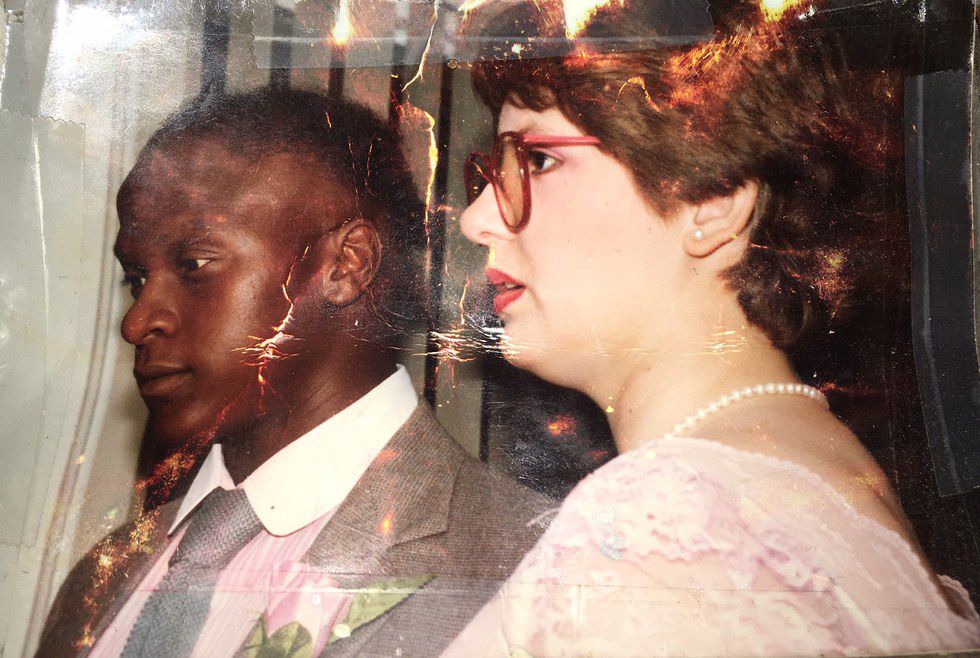(My parents at their wedding reception in 1985.)
Being biracial is one of the biggest parts of my identity, and it fills me with pride. However, it also fills me with sadness and fear. It is 2016, and somehow, race is still a touchy subject. People become uncomfortable when confronted with something outside of their definition of normal (with biracial or multi-racial people sometimes fitting into that category), but I am not saying biracial or multi-racial people are unfairly or unjustly targeted (although sometimes, that is the case).
Nonetheless, when a person who identifies as only one race comes in contact with a person of multiple nationalities or races, the usual response is curiosity. Curiosity is not bad, it is usually not hateful, but sometimes, it can be insensitive and intrusive. I am proud of my heritage, and I usually do not mind answering the question so many people who are multi-racial are accustomed to hearing, "What are you?"
This question is seemingly innocent, but it does present a few problems. First of all, I am human. That is "what" I am. Secondly, it still amazes me because with so many other things in the world, people still assume your heritage is their business. Some people are polite and just curious, but others are accusatory and think you owe them explanations as to why you do not look the way they look or the way they think you should. This obviously presents issues.
The other problem with this question is the ways in which you should answer — if you choose to answer at all. If you are confident in your answer, simply explain to them your mother is of one race or multiple, your father is of another, and the pairing resulted in you. That usually gets the job done.
However, what happens when the person asking does not like your answer? In my mind, the answer to that is also simple, "So what?" It isn't their business anyway. Yet, the problems lie in the fact their dislike of your answer could turn into a hateful response fueled by prejudice.
I identify as biracial because my mother is Caucasian and Native American, while my late father was of African American decent. The problem I usually encounter when I explain my heritage is the "Wow, you don't look black," or "Oh, I thought you were Hispanic." Neither of these responses pose an immediate threat, but on rare occasions, my answer will illicit hateful responses.
I have older people's facial expressions turn from curiosity to disgust (probably at the thought of a white woman marrying a black man), and on a few other occasions, people gave more than just dirty looks. If you are ever in this type of situation, you know it can go from uncomfortable to frightening very quickly.
Another problem I encounter when people find out I am biracial is they expect me to identify more with one race over the other. First of all, I find this notion ridiculous. Secondly, I do not appreciate the assumption I have to be one or the other. I am black, I am also white and Native American, and that is okay.
I have people tell me I cannot be black because of my lighter skin tone and different hair texture, or because I listen to country music and wear cowboy boots. This doesn't make any sense to me. Who are they to decide my level of blackness? It is also funny to me some of these same people are proud of "our first black president" when President Obama's mother is white, as is mine, but they chose to ignore that fact because his genes presented in a different way than mine (There's a double-standard for ya!), but then I get the same assumptions about my whiteness but for different reasons.
Regardless, I have news for everyone — I am Erika. I am human, just like all of you.
We live in a time where racial tensions are high. So much so, I find myself hesitating when asked about my racial identity. I am proud of who I am, but that pride hangs under a shadow of fear. It is 2016, and it is time to have real conversations about race relations, instead of continuing the cycle of prejudice and hate. Let's talk, y'all.









 The minimum wage is not a living wage.
StableDiffusion
The minimum wage is not a living wage.
StableDiffusion
 influential nations
StableDiffusion
influential nations
StableDiffusion












